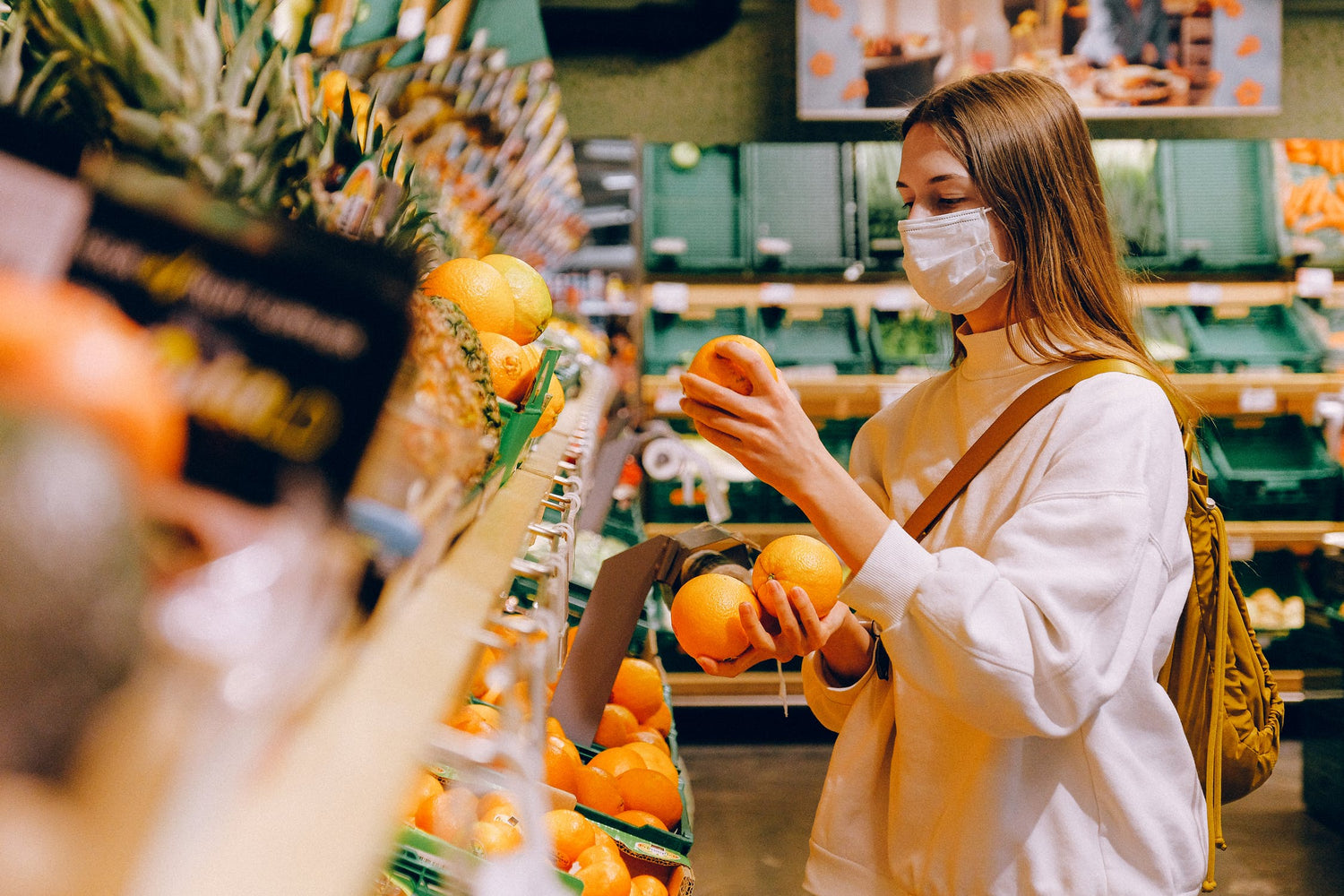Did you know that people in some countries were wearing masks year-round even before the coronavirus pandemic?
In fact, wearing a face mask is the cultural norm in some Asian countries like Japan, whose consumers spend approximately $230 million a year on face coverings. Face masks have even become a fashion statement in some areas, with a Chinese fashion designer creating a mask line labeled “smog couture” which has also been sported by famous American music artists.

(Sources: Quartz and Billboard)
Research suggests that if 80% of people wear masks, the number of COVID-19 infections would plummet to 1/12 of what they are now. However, even after the COVID-19 crisis settles down you’ll likely still see people wearing masks. To explain why, we’ve compiled a list of the top reasons beyond coronavirus to wear a face mask year-round.
1. Prevents you from spreading viruses to others
As you’ve likely heard, the primary purpose of wearing a face mask is to prevent you from spreading viruses to others through respiratory droplets. You may think “If I’m sick, I’ll stay just stay away from public spaces.”, but even beyond COVID-19 it’s possible you may be sick and not know it. Take the flu for example, which data suggests one in three infected individuals will be asymptomatic (not show symptoms).
Even in cases where individuals do show symptoms, some may brush it off as “allergies” or a light illness and continue about their day as normal. This is dangerous, because it may lead to the spread of the virus to others who could develop more severe symptoms as a result of a weaker immune system. Thus, it’s important to wear a face mask not for your own health — but as a means to protect others around you.
2. Reduces the chance of respiratory droplets infecting you
While the primary purpose of wearing a face mask is to protect others, they can offer a small amount of protection for the wearer. Most masks don’t offer a reliable level of protection from inhaling small airborne particles, but they are helpful at blocking large droplets that may spread through coughs, sneezes, or splashes.
You may think this isn’t an issue as long as you stay the CDC recommended six feet away from others, but a study published in the Journal of the American Medical Association found that respiratory droplets can actually travel more than 26 feet and linger in the air for several minutes after. Even more troubling, is that a single sneeze can spread up to 40,000 of these droplets at a speed of up to 100 feet per second giving you virtually no time to react and turn away.
So while wearing a face mask isn’t a full-proof way to prevent you from getting sick, it does offer an added level of protection against large particles that may spread viruses.
3. Reminds you not to touch your face
Research suggests the average person touches their face about 23 times per hour, which could potentially lead to an individual transferring a virus from a non-dangerous area of their body such as their hands to a vulnerable area such as their nose, eyes, or mouth. This is known as self inoculation, and many common diseases are spread through it such as the flu and chickenpox.
Elliot Berkman, a psychology professor at the University of Washington, has stated that wearing a face mask may serve as a psychological cue that reminds you not to touch your face. Berkman notes that “Habit change is very, very difficult” but that changing something in your environment can serve as an interruption for otherwise automatic actions. For example, Berkman notes that habitual smokers will sometimes alter their pack of cigarettes to draw attention to their reflexive behavior when they reach for one. By the same logic, when you go to touch your face but instead feel your mask — you are reminded not to touch your face.
4. Encourages others to wear a face mask
Wearing a mask encourages others to do so as well according to some psychotherapists, who cite the concept of “behavioral mimicry” as evidence. Essentially, this scientifically-backed concept notes that people are likely to copy the behavior of those around them and this should hold true for wearing masks as well. If an individual isn’t wearing a face mask, seeing others wear them may cause the individual to feel anxious because they are straying from the herd mentality. The more this happens, the more likely they are to convince themselves to wear a mask the next time they go out.
You probably didn’t wear a mask the first time you saw someone else wearing one, but as more people started doing so you likely began wearing a mask too. Even beyond the COVID-19 pandemic, making masks a cultural norm can help reduce the spread of diseases and save lives.
5. Respirator masks can help reduce exposure to pollution
Common surgical or cloth face masks provide little protection against pollution, but a particular category of masks known as “respirators” does offer added protection against smaller airborne particles. Of the various types of respirator masks, the N95 is generally regarded as the most effective. N95 masks have a protection factor of 5, meaning they can filter out all but 5% of harmful particles from the air. To further reduce the intake of smaller particles (particularly those smaller than 0.3 microns that may come from vehicle emissions), wearers can use these masks in conjunction with add-ons such as an activated charcoal filter to reduce exposure to gases.
6. Certain masks can help with allergies
Respirator masks like N95s and another type known as “allergy masks” can provide protection against airborne allergens including dust, pollen, mold, dander, lint, and soot. When fitted properly with a snug fit, these masks help keep airborne allergens out of your nose and mouth which may otherwise lead to an allergic reaction. While some people wear these masks during activities that spread allergens such as yardwork, they can be worn year-round to reduce your exposure to airborne particles that trigger allergy symptoms.
Get a reusable face mask for year-round use
Even once the COVID-19 pandemic is over, you can still help reduce the spread of other viruses by wearing a mask as you’ll likely see others do. If you’re going to be wearing a mask year-round, make sure the one you’re using is reusable and comfortable for daily use.





Leave a comment
This site is protected by hCaptcha and the hCaptcha Privacy Policy and Terms of Service apply.